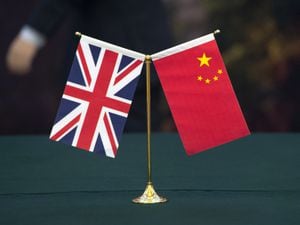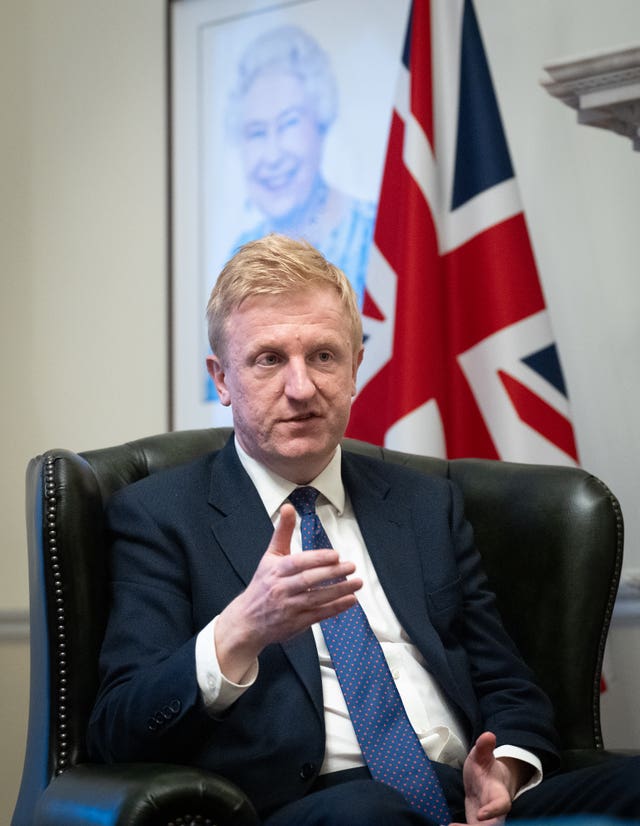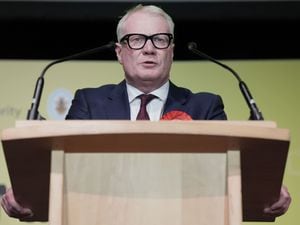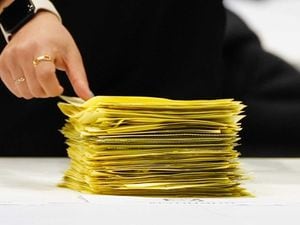Deputy PM Oliver Dowden seeks to ease fears on cyber threat from China
MPs raised a number of issues in the Commons including over a Government-contracted ‘supercomputer’ from a Chinese firm.

Deputy Prime Minister Oliver Dowden has attempted to ease concerns expressed by MPs in relation to threats to the UK’s national cybersecurity from China.
During Cabinet Office questions on Thursday, MPs raised a number of issues including a Government-contracted “supercomputer” from a Chinese firm, and a former parliamentary researcher charged with spying for China.
The Government has faced calls to take a tougher stance on China on a number of fronts, including on cybersecurity, after blaming Beijing for an attack on the Electoral Commission which exposed the personal data of 40 million voters.
Cabinet tensions have reportedly surfaced over the issue, with some ministers pushing for tougher action on Beijing while others are resistant over concerns it could harm economic and trade relations.

Shadow Cabinet Office minister Pat McFadden questioned Mr Dowden as to how ministers will protect UK data following a Government contract for a “supercomputer” from a Chinese firm.
Mr McFadden told the Commons: “The Government recently awarded a contract for a supercomputer to Lenovo, a China-headquartered firm that has been the subject of enforcement action by the United States on security grounds.
“Now this supercomputer will be used by critical government bodies, like the UK Atomic Energy Authority. How will ministers safeguard the public against any possible misuse of sensitive government data as a result of the awarding of the contract?”
Mr Dowden replied: “We will be working with a National Cybersecurity Centre and the National Security Secretariat to make sure that full checks and measures are put in place to make sure that such abuse shouldn’t occur.”
Mr McFadden further asked if Volt Typhoon, a state-supported Chinese cyber operation, has infiltrated the UK’s “national IT infrastructure”.
Volt Typhoon was found to have exploited weaknesses in US technological infrastructure, but rather than being in active use, was pre-positioned to infiltrate information systems in the future.
The Labour frontbencher said that other members of the Five Eyes alliance – an intelligence group comprising Australia, Canada, New Zealand, the UK and the US – were “likely to have been targeted”.
He told MPs: “One of the other cyber threats that modern states are facing is pre-positioning, the planting of destructive software in critical infrastructure, which can then be activated at a later date.
“The director of the FBI has said that pre-positioning of the Volt Typhoon type discovered in American infrastructure was, and I quote, ‘the defining threat of our generation’, and America’s Cyber Defence Agency said that Five Eyes allies were also likely to have been targeted.
“So can I ask the Deputy Prime Minister, has the Government looked for or found Volt Typhoon-type infiltration of any parts of their critical national IT infrastructure? And if so, what action has been taken to remove it?”
Mr Dowden replied: (Mr McFadden) does raise a very important issue in respect of pre-positioning, and he will appreciate there are limits to what I can say from the despatch box given that some of this relates to higher side intelligence.
“But I can assure him that we are working with our Five Eyes allies and in particular the United States, since the US and the UK have exceptional capability in these areas, to make sure we both have adequate knowledge and understanding of such pre-positioning and take effective steps in respect of it.”

Last week it emerged that two men had been charged with spying for China, one of whom worked as a parliamentary researcher and was closely linked to senior Tories including Tom Tugendhat, now security minister.
Earlier in the session on Thursday, Labour MP Mike Amesbury (Weaver Vale) pointed out that two UK residents have recently been charged with spying for China, stating: “When is the minister going to a get a grip of this serious situation, a serious threat from China to our democracy?”
Mr Dowden replied: “We have taken a range of actions, including for the first time directly attributing attacks to China and imposing sanctions in respect of them.”
The Deputy Prime Minister also said he has “considerable concerns” about deepfakes and warned the public not to believe all images they see in the run-up to the general election.
Mr Dowden told the Commons: “I do have considerable concerns about deepfakes in respect of the upcoming election. I think we have seen in previous elections hack and leak being used as a tactic by hostile states. We have to take into account both the capability of deepfakes, particularly enhanced by artificial intelligence.
“That’s why we are developing our strategy through the defending democracy taskforce and we are undertaking exercises right now to enhance our capabilities.
“What I would say is though, I think this is a challenge for all citizens to appreciate that we should not necessarily take all images to be true when we first see them, because of the enhanced capabilities of adversaries.”





